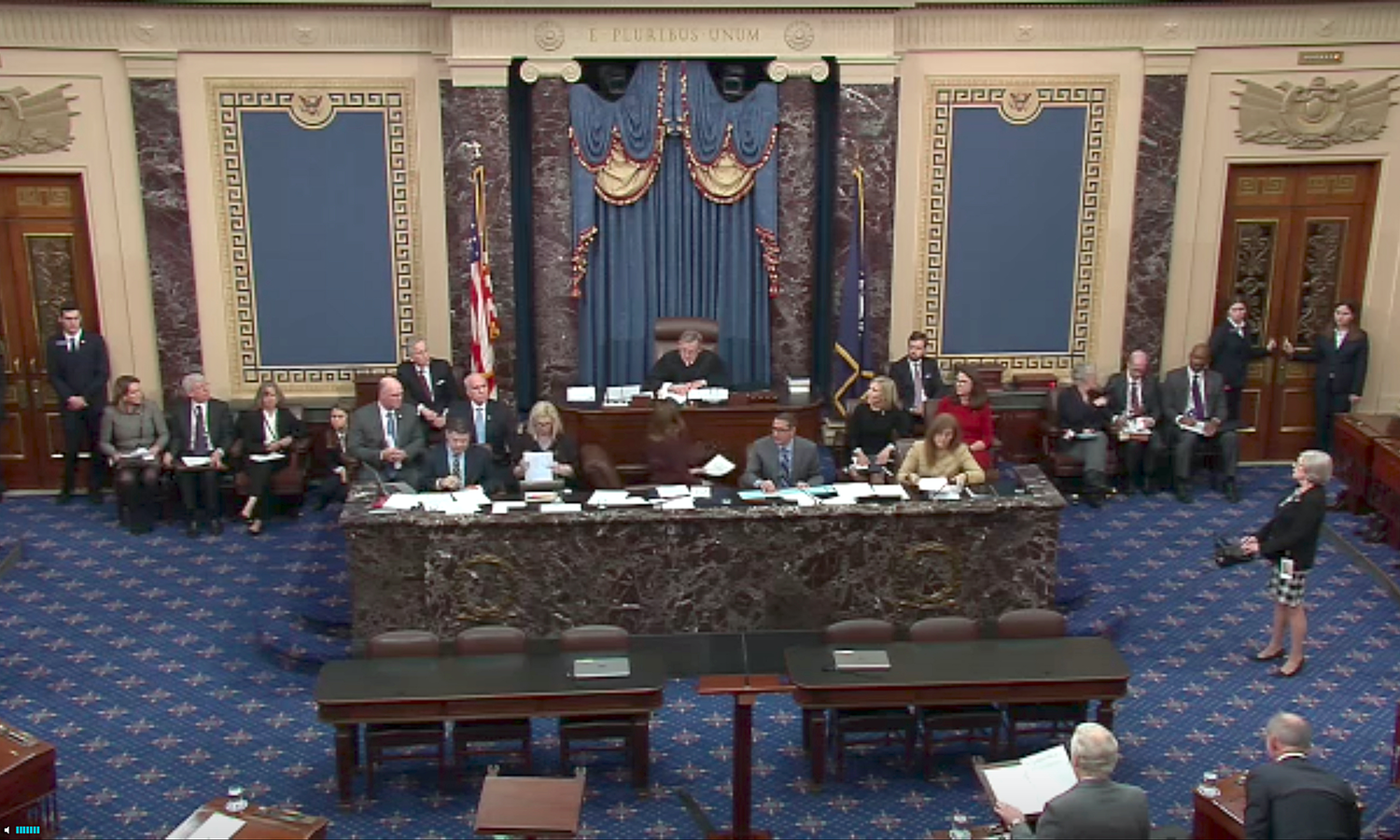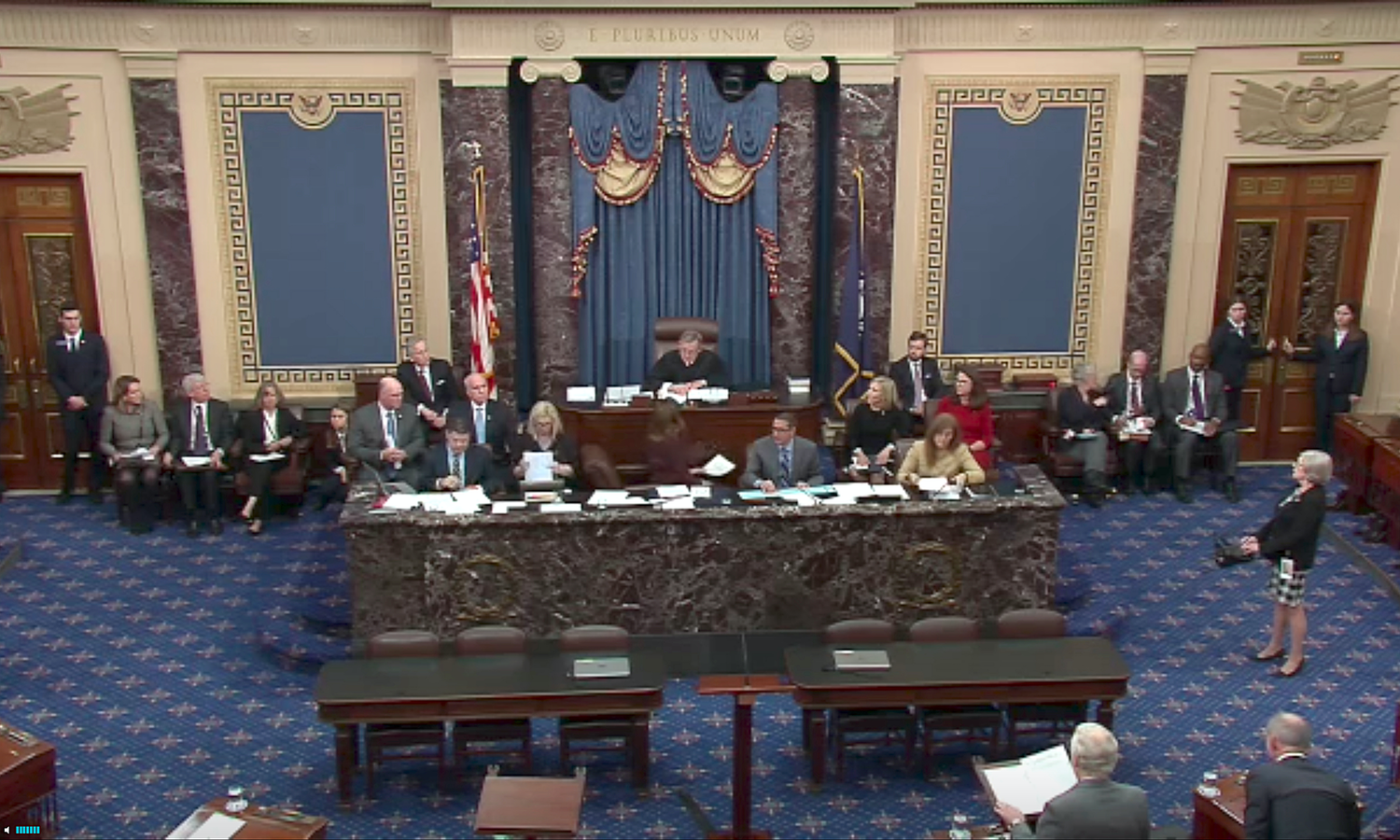It’s the January 2020 Developers Alliance US Policy Update. Privacy and misinformation concerns continue, plus the elephant finds its way into the room.
In This Update
USTR: Ricotta Get Rid of This Tax
Retaliation Is The Sincerest Form Of Flattery
Facebook Updates Fake Banning Policy
In The Fight Against REAL Fakes…
FTC Reviews COPPA 2.0 Submissions
YouTube Changes Guidelines For Children’s Content
Impeachment Updates
Impeachment proceedings are currently in the Senate but don’t expect it to be the same as a standard court trial. The House of Representatives impeached President Trump on December 18th over the charges of abuse of power and obstruction of Congress. Ahead of the vote, Trump wrote Speaker of the House Nancy Pelosi a scathing letter comparing the impeachment proceedings to the Salem Witch Trials; Pelosi calls it “Ridiculous”. While some committees are still working hard for when the impeachment proceedings are finally complete, things in DC appear to have stalled until they get the politics out of the way of the governing.
Taxes
USTR: Ricotta Get Rid of This Taxs
On January 7th, the Office of the U.S. Trade Representative held a hearing on France’s Digital Services Tax. The hearing comes as USTR is weighing imposing a 100% tariffs on up to $2.4 billion worth of French goods, including but not limited to some exceptionally tasty wine and cheese. (Which, ICYMI: January 22 was National Cheese Lovers Day) While the cheese and winemakers testifying were obviously against the imposition of tariffs, the tech industry was present and vehemently in support of any efforts to curb France’s taxation. One tech group testifying stated, “Today’s hearing … is about more than the French digital services tax…It is about preventing the wide-scale application of targeted, unilateral taxes, which stand to undermine a functioning international tax system and compromise the predictability it has afforded to companies to conduct business globally.”
Retaliation Is The Sincerest Form Of Flattery
The tariff would be imposed in retaliation to France’s plans to tax tech giants (specifically American-owned companies such as Google, Apple, Facebook, and Amazon) with payments equivalent to 3% of their French revenues. France has agreed to delay the imposition of the taxes until the end of 2020 so that the Organisation for Economic Cooperation and Development (OECD) can strike a multilateral agreement on digital taxation. If the OECD does not reach a deal by the end of 2020, France will enforce its proposed tax unilaterally. It is worth noting that several other countries (mainly throughout Europe) are also considering some form of digital service tax — thus without an OECD deal this may turn into a game of whack-a-mole with parmesan and Heineken.
Content
Americans At Risk!
On January 8, 2020, the House Energy and Commerce Committee held a hearing entitled “Americans at Risk: Manipulation and Deception in the Digital Age.” Witnesses included technology academics and representatives from Facebook and the Center for Humane Technology. Panelists carefully balanced the right to freedom of speech with the implications and public safety concerns with transmitting deepfakes or manipulated media. Facebook, in particular, highlighted the work they have done via policy changes, third party vendors, and the implementation of new technologies in an effort to better police content and the accounts generating it. Others highlighted the speed at which ‘fake news’ spreads, and thus the importance of a system that allows for content moderating in an effort to contain the public given the penetration rate of social media platforms, particularly in developing countries.
Facebook Updates Fake Banning Policy
Ahead of the hearing, Facebook announced that while videos manipulated for purposes of parody or satire” are still acceptable on the platform, “misleading manipulated media, including certain types of deepfakes” will be banned particularly in light of the impact of the upcoming 2020 U.S. elections.
Ecommerce
In The Fight Against REAL Fakes…
US Department of Homeland Security recently released its plans to crack down on counterfeit products sold online. They have threatened a legal and legislative response given the hundreds of billions of dollars of fakes sold on platforms like Amazon every year. This is largely in light of the number of counterfeit goods seized from China in recent years and the broader US efforts to reform their trade policy with the nation. Technology companies including Amazon have supported the efforts, stating “We know that trust is hard to earn and that’s why we’ve invested more than $400M to protect our store from fraud, including counterfeit or non-compliant products…We already have programs and processes that go well beyond our obligations under US law.”
Privacy
COPPA Continued
Members on both sides of the aisle have yet to forget about their desire to push COPPA reforms, as Reps. Tim Walberg (R-MI) and Bobby Rush (D-IL) introduced the PROTECT Kids Act on January 9th. In the press release, the sponsors of the bill state, “technology has developed to the point where updates to COPPA are needed to strengthen kids’ digital safety.” In support of the bill, Rep. Rush stated, “due to incredible advancements in technology — they are able to stalk our children through their mobile devices and in video game lobbies.” This proposed bill would:
-
Raise the age of parental consent protections from children under the age of 13 to children under the age of 16.
-
Add precise geolocation information and biometric information as two new categories of personal information that are protected under COPPA.
-
Affirm that rules under COPPA also include protections to children on mobile applications in addition to already existing rules for websites and online services.
-
Provide parents the ability to delete any personal information about their child, a feature never before afforded to parents under COPPA to protect their children.
-
Require the FTC to conduct a study on the knowledge standard found in COPPA and report recommendations to Congress.
FTC Reviews COPPA 2.0 Submissions
Despite this proposed bill (along with the ‘COPPA 2.0’ bill introduced by Sens. Markey (D-MA) and Hawley (R-MO), found here), the FTC is currently undergoing a rule revision on COPPA. Developers Alliance filed comments on December 9th, 2019 in response to a Federal Trade Commission (FTC) request on whether additional changes are needed to the 2013 revisions to the Children’s Online Privacy Protection Rule (COPPA Rule). Check them out here.
YouTube Changes Guidelines For Children’s Content
Given the increased chatter (and FTC enforcement) around COPPA, YouTube recently announced further changes to the data rules and formal rollout on children’s content on their platform. Building off of their policy changes from last fall, content creators now must state whether or not their content is made for kids upon uploading the videos. Data from any viewer watching a video that has been designated as for a child will be treated as if a child is viewing it for data policy purposes, regardless of the actual age of the viewer. Moderation of the content on the platform to ensure compliance will continue.
Facial Recognition
The House Oversight and Reform Committee held a hearing on January 15th entitled “Facial Recognition Technology (Part III): Ensuring Commercial Transparency & Accuracy.” The hearing was meant to “examine the various ways that private sector entities use facial recognition technology; the potential transparency, privacy, accuracy, ownership, and security implications involved in its use and the partnerships these companies develop with government entities; and the possible legislative solutions that can be implemented to avoid these risks.” Witnesses included industry advocates, and AI and privacy scholars.
Members on both sides of the aisle appeared genuinely interested in gaining input from the witnesses so that they may build a stronger piece of bipartisan legislation — a much-needed win for both parties in a contentious year followed by what presumably will be an even more partisan election year.
Many expressed concern over the biased output and applications of facial recognition technology, especially as it pertains to minorities, citizen awareness of the technology, and the impact on government programs such as Fair Housing. There additionally was some discussion over how a broader data privacy bill would factor into any facial recognition legislation, particularly at the federal level.
Industry
CES 2020 Debut
The Consumer Electronics Show came to Las Vegas on January 1st-10th. This year’s show continued the recent trend of highlighting sustainability and smart home products. A home water recycling product by startup Hydraloop and a surprise concept car from Sony were among the major highlights. For more trends and winners, Engadget and ZDNet have more detailed roundups worth a look.
Trump-last At CES
Officials from the President’s Administration (namely advisors and federal agency leaders) are regularly asked to speak at CES. Most notably this year, Senior Advisor and daughter to President Trump, Ivanka Trump gave a keynote. In it, she shared her beliefs in improved STEM education and government investment in the technology workforce. She stated, “Innovation cannot be bridled…(it’s)a net job producer,” and cited that the administration is seeking to “celebrate the other pathways that exist, such as an apprenticeship.” Despite the aforementioned regularity, conference organizers faced much backlash for having Trump speak, as women in the technology field are largely underrepresented at the conference. Detractors claimed Trump was not a ‘woman in tech’ given her role in the Administration and past business endeavors.






